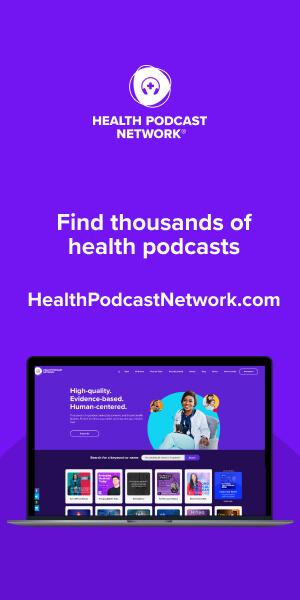By Cinzia De Vincenzi
The HIMSS21 & Health 2.0 European Health Conference, one of Europe’s largest digital health and care events, was held virtually from June 7-9, 2021. Featuring over 120 international speakers and technology experts, 60+ live and on-demand sessions, and solutions from over 130 market suppliers; it tackled the biggest issues our healthcare systems are facing today.
As expected, one of the hot topics was the COVID-19 Pandemic; Coronavirus has altered the landscape of worldwide healthcare irrevocably and demonstrated the necessity to accelerate the digital transformation. Part of the discussions was focused on the importance of legislation, reimbursement, procurement and maturity of the technology, and, in turn, how procedures in place were completely misaligned with needs and the crisis period that we are facing.
Great lessons emerged from this tough period; the importance of strengthening Europe’s resilience and its citizens’ confidence in the European social model, the need to promote a union based on shared values of solidarity, connection and a cohesive plan in terms of regulations and technology assessment. Typically, European countries pursue health system goals that value high quality, efficiency, equity, affordability and accessibility of health care. One of the dominating factors influencing the performance of health care systems in achieving this goal is technological change, including the ongoing process of digitalisation of health services.
As Diogo Martins, International Projects Coordinator, Shared Services for the Ministry of Health (SPMS)- Portugal stated in his speech; it is for this reason that it’s really important to keep the momentum going, and ,using the resilience discovered during Covid-19, work on a structured plan in order to reinforce public health cooperation in support of an equitable and universal access to medical treatment. A key factor is the continued improvement in digital maturity for creating an innovative and sustainable healthcare system for the future.
During Covid-19, patients have moved dramatically toward online channels; in turn, companies, industries and the healthcare system have had to respond and invent new ways of treating and monitoring patients at a distance. Telehealth is one of the foremost digital solutions introduced during this strange period and ,alongside dedicated regulation, aimed to ensure continuous treatment, especially for chronic patients. It allows long-distance patient and clinician contact, care, advice, reminders, education, intervention, monitoring, and remote admissions. While it can help provide much-needed care to the vulnerable and hard-to-reach populations, telehealth also presents unique legal and regulatory compliance challenges, particularly within the data protection and cybersecurity realm.
Given the importance of these aspects, specific sessions were fully dedicated to data protection and cybersecurity. Elena Sini CIO, GVM Care & Research, Italy moderator of the expert panels, interviewed different Italian experts on the cybersecurity topic. This discussion illustrated the stark lack of information,providing evidence of the overall weaknesses of the processes, exemplified by the fragmented medical records that resulted in increased costs and drop in efficiency.
Due to the digitizations of all processes in general, as well as the usage of new healthcare technologies like Telehealth, cyber-attacks dramatically increased during Covid-19. Enisa, the European Union Agency for Cybersecurity that contributes to EU cyber policy, faced a whole new facet of problems with the shift to online services. The agency’s role is to work cooperatively with its key stakeholders to strengthen trust in the connected economy, to boost the resilience of the union’s infrastructure, and ultimately, to keep Europe’s society and citizens digitally secure. Proper and strong governance needs to be established, extending a focused culture on this topic, with strategic rules and plans to avoid and minimize possible cybersecurity attacks, and to protect Data information and security for maximum fluidity in the future.
Due to the fact that patient care in the near future will be more and more driven by data collection, the priority is to respect the GDPR regulations, protect data from cyber-attacks and ensure proper information usage. A drastic change of mindset is also needed within the healthcare workforce. In this new digital era, healthcare professionals such as nurses and doctors are seeing a change in work process, such as using APPs, and converting “paper” based tools to electronics, which has knock-on effects to their daily practice. When moving in this new direction it is really important that they are well prepared and trained in the new technologies’ frontiers to fully embrace the advantages the digital world has to offer. They are the first actors, a crucial turning point for a better adoption of the new technologies in the healthcare system in order to accelerate the digital transformation.
Yet, we must not forget to empower patients in this great leap forward to the new Digital Age. For this reason Start-ups, and global leaders in health technology are launching innovative and disruptive digital solutions, like APPs or advanced devices, for example, demonstrating the potential of data driven care in healthcare powered by artificial intelligence features. Technology is transforming the medical landscape, but the combination of both patient engagement and adherence is needed for a good health outcome. The more patients proactively participate in their own well-being and care, the better the outcomes, utilisation, financial outcomes and member experience.
Definitely, the takeaways of this conference are that the COVID-19 pandemic has opened up new frontiers, generating new approaches mandatory in healthcare. Now, it is data that is considered to be the new fuel for our systems to analyse, share and use, and at the same time, to protect. As we are moving to a more tech-driven era with an impact on the global health ecosystem, we all need to change our mindsets and feel part of the solution chain, because health starts from us.
We can speed up the usage of new, smarter systems with the right level of awareness and information. Although, the priority is to improve the quality of life and reach a sustainable care cost and system using the power of innovations. It is not just a dream for the coming generations but something real and amplified during the crisis. We have to follow the flow, adapting strategies to change and transform the global health ecosystem as much as possible.





